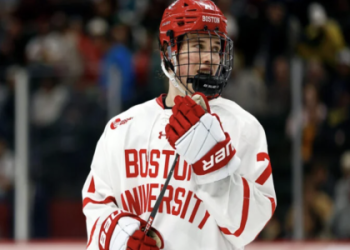Boston hockey has long been synonymous with skill, grit, and an unwavering passion for the game. As the NHL season progresses, players and teams continuously strive to enhance their techniques and performance. This article delves into essential strategies to improve your hockey game, inspired by the famous Boston style and coaching insights from local teams.
To start, improving one’s game often begins with focusing on fundamental skills. Boston coaches emphasize the importance of skating proficiency. According to Bruins head coach Jim Montgomery, “The foundation of a successful hockey player lies in their skating ability.” This statement highlights the necessity of mastering acceleration, agility, and edge work. Young players in Boston benefit from engaging with the area’s dedicated training programs. These programs teach them not only to skate faster but also to maintain balance and control during gameplay.
Furthermore, puck handling is a critical area where players can gain an edge. Players like Bruins’ star David Pastrnak have demonstrated exceptional stick-handling abilities. When discussing his training, Pastrnak stated, “I spend countless hours practicing with the puck. It’s all about creativity and confidence.” This acknowledgment illustrates that effective puck handling can create more space on the ice and open up scoring opportunities. Drills that simulate game scenarios can bolster a player’s ability to manage the puck under pressure.
In addition to individual skills, understanding the game strategy is paramount. Players must think ahead and anticipate opponents’ moves. Local Boston hockey clinics focus on tactical awareness, teaching players to read plays and position themselves effectively. For instance, defensemen must recognize when to pinch and when to fall back, a concept known as “playing the game with your head.” A local youth coach emphasizes that hockey is just as much about mental strategies as it is about physical prowess.
Building Physical and Mental Toughness
Moreover, physical conditioning cannot be overlooked. Hockey requires endurance, strength, and agility. Training that includes cardio workouts, weightlifting, and flexibility exercises prepares players for the rigorous demands of the game. Boston Red Sox’s strength coach mentioned, “Cross-training plays a vital role in helping hockey players avoid injuries while improving their performance.” This multifaceted approach to training addresses all aspects of a player’s fitness, ultimately leading to better performance on the ice.
Equally important is the mental aspect of the game. Hockey players must develop resilience and the ability to remain focused under pressure. Bruins goaltender Jeremy Swayman noted, “Mental conditioning is as important as saving goals. You have to stay calm and composed.” Skills such as visualization and mindfulness can help players stay mentally sharp during the ups and downs of a match. Local teams are increasingly incorporating sports psychology into their training regimens, recognizing its significance in player development.
Connecting with the Community
Creating a sense of community is another influential aspect of Boston hockey. Players are encouraged to engage with aspiring athletes. Bruins veteran player Brad Marchand often gives back through community outreach programs, stating, “It’s about inspiring the next generation.” By participating in local events, players can share their experiences and motivate young talent to pursue excellence in hockey. Building a supportive environment fosters growth and sustains the culture around Boston hockey.
In conclusion, improving your hockey game in the Boston tradition involves mastering fundamental skills, understanding game strategies, maintaining physical fitness, developing mental toughness, and connecting with the community. Each player must commit to their personal growth and remain resilient throughout their journey. As the Boston hockey landscape continues to evolve, one question persists: What skill do you believe is the most vital for aspiring hockey players to master? Share your thoughts and engage with fellow enthusiasts!















